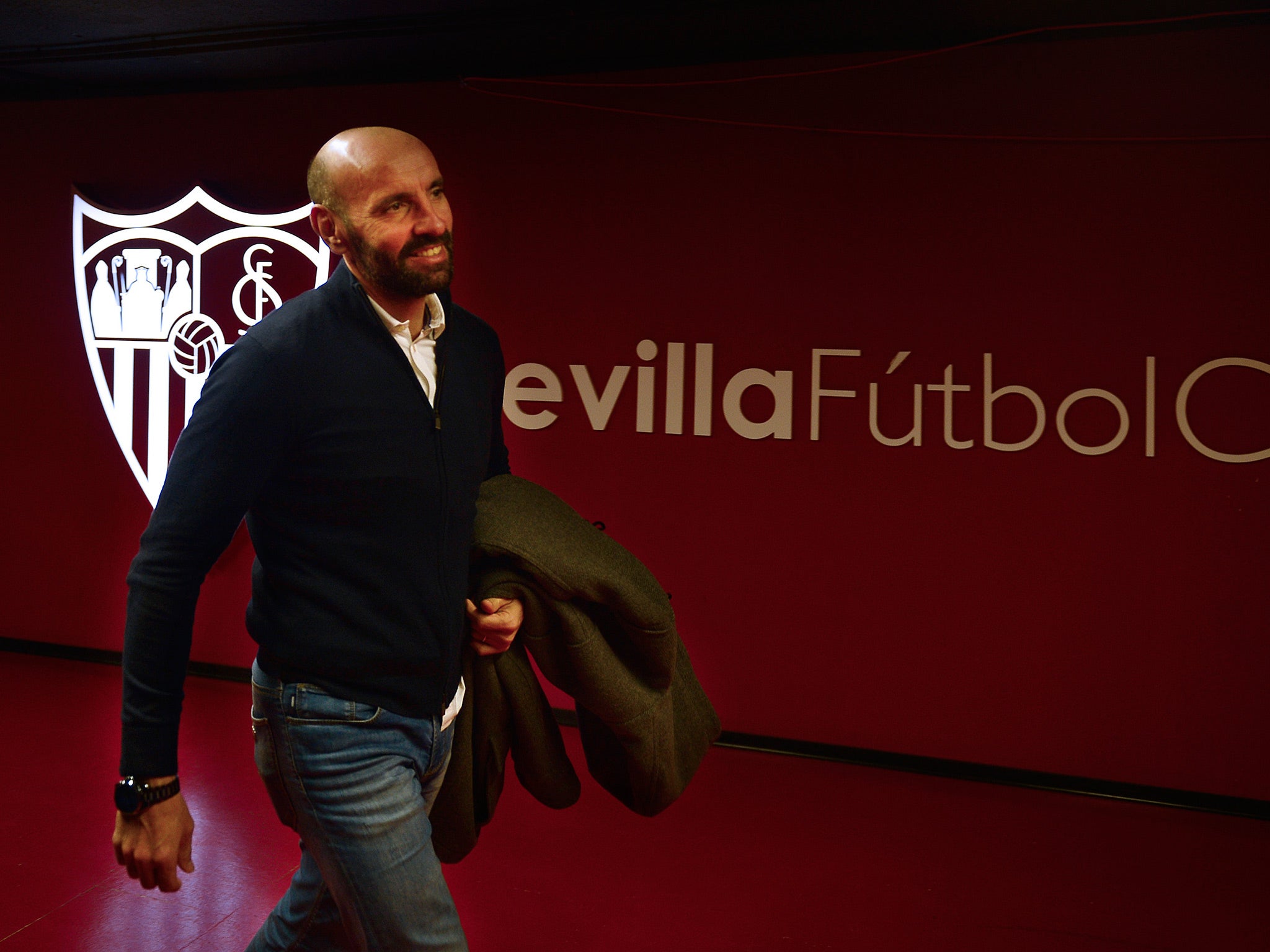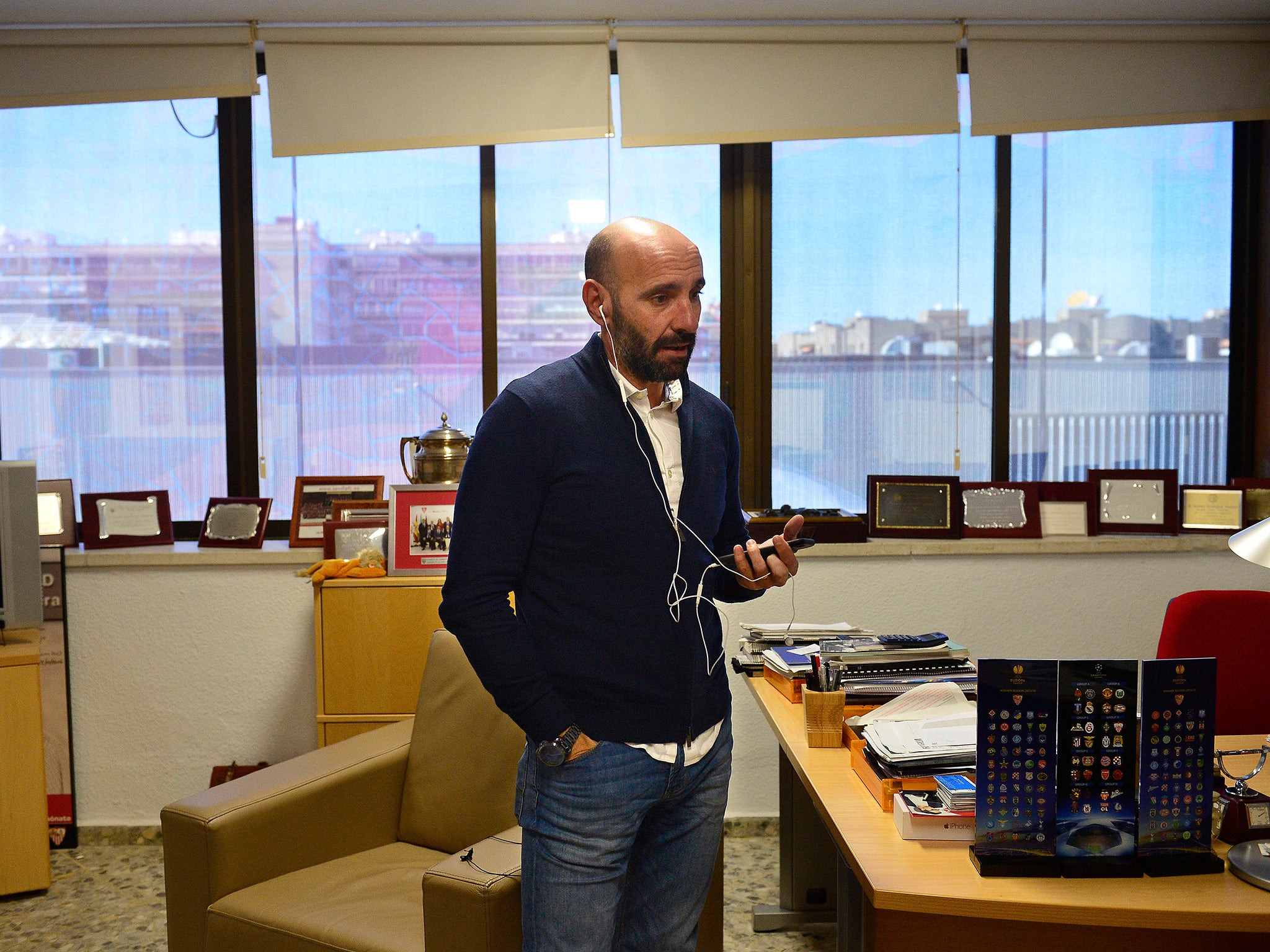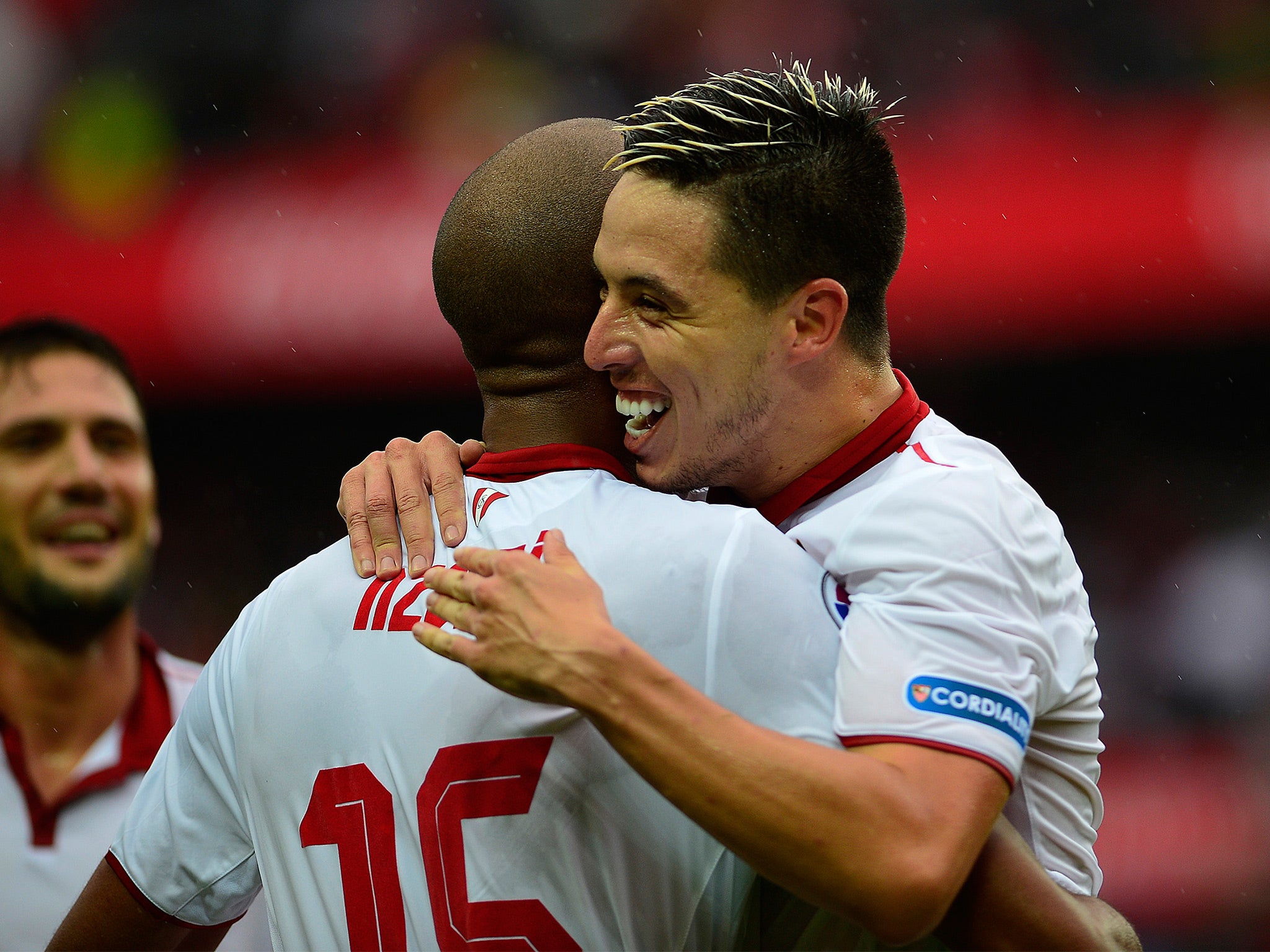Monchi, the man behind Sevilla's rise to the top table of European football
The Andalucian club's sporting director has become perhaps the most important figure in its history, reshaping its structure for success

It is a challenge that Leicester City, and many English clubs right up to Liverpool and Arsenal, would be all too familiar and frustrated with. How do you ensure a team keeps on at the same level, when they keep losing their best players?
No matter what you try and do, there is always the sense that a kind of attritional decline is inevitable. It is very difficult to find examples of the opposite - apart, of course, at Sevilla. There, at the Sanchez Pizjuan, there are copious examples.
What is really impressive, though, is not just that Sevilla have kept on going. It is that they have gradually improved. They have turned one of football’s most problematic and persistent economic disadvantages into a unique advantage, playing the system against itself.
That is all the more impressive given the system in Spain involves the two super-resourced super heavyweights of Real Madrid and Barcelona, but it appears Atletico might be in a brink of a breakthrough.
For so long, after all, they were the ultimate Europa League team after winning the competition five times in 11 years including in all of the last three seasons. For that, though, read: best of the rest in the second tier. It was occasionally a consolation, too, since they went out of the Champions League at the group stage.
That is something else that has changed. They finally qualified for the last 16 again this season, in the same campaign that they look capable of splitting Barcelona and Real and putting in a proper title challenge.
In fact, they have arguably overtaken Atletico Madrid as the over-performing ‘outsiders’ and certainly filled a vacuum left by the chaos at Valencia. There is a stark contrast between those two more southern clubs. While Valencia are currently a basket case, Sevilla may well be the best run club in Europe.
Except that ‘club’ might be stretching it. Almost everything that Sevilla do so well is down to one man, and one who used to be such an innocuous figure a the club.
Ramon Rodriguez Verdejo was once little more than the substitute goalkeeper. He is now the sporting director, and probably the most important figure in the club’s history. His influence can be measured in trophies. In the time between the 1948 Copa del Rey and when Monchi took over, Sevilla didn’t win a single major trophy. In the time since, they have claimed seven: those five Europa Leagues and two Spanish cups.
There was a pointed moment in Claudio Ranieri’s pre-game press conference when he gestured to a wall to his right in the media room, that had had the murals of so many of those trophies on it.
“There is is, 10 years of triumphs and that shows the club is working well. They change manager and the club is always up. That’s good for the city, good for the club. They’re doing something big and Jorge [Sampaoli] is doing the same, playing great football. The people are happy. This is what we can leave… emotions, dreams and glory.”

All of the unthinking joy that produces, however, has come from the most rational and logical thinking. By supremely combining science and fine-tuned football instinct, Monchi has created perhaps the finest scouting system in Europe.
You could certainly go through the club’s sides over the past 15 years and easily come up with a squad - let alone a first XI - to compete with the best in Europe. Look at the names: Sergio Ramos, Ivan Rakitic, Jesus Navas, Seydou Keita, Dani Alves, Kevin Gameiro, Jose Antonio Reyes, Luis Alberto, Andres Palop. All, of course, were also sold at a healthy profit.
One agent who works at the top end of the game privately chuckled when Sevilla’s system was put to him, describing it as “a battery hen”.
The mechanics of it are certainly admirable. Monchi has 16 trusted judges watching a series of leagues, first of all just “accumulating data” and looking at what stands out. After five months, and when they have noted any names that repeatedly impress the naked eye, they then properly scrutinise the players in different situations. By the time that process is finished, they usually have a document of around 250 possible signings, and can easily distinguish them according to key principles.
All of this was detailed to Sid Lowe in an impressive interview before the 2016 Europa League final win over Liverpool. What still stood out about Monchi then, though - and what marks them apart from so many similar economically driven ‘smaller’ clubs - is that there is a proper end product targeted. This is not just about surviving. It is about succeeding, and that mentality has undeniably been a massive reason for why they have won so much, they have progressed when others attempting something like that have gradually come to a halt.
“No one takes a ‘what great economic results’ banner to the stadium,” Monchi told Lowe. “Winning has given us sporting glory and that has a knock-on effect economically.”

It is also telling that their approach has become even more nuanced, more sophisticated, while echoing some of the best methods of the past. Monchi has added a classic Brian Clough/Billy Beane method, consciously looking for talented players who - for whatever reason - were either undervalued or had underperformed in their career, aiming to maximise what they’ve got. You only have to look at the amount of players who struggled in England currently staring for Sevilla: Steven N’Zonzi, Stevan Jovetic, Samir Nasri. It just another way they have taken things up a level, as is the appointment of Jorge Sampaoli.
There is only one question in all of this: what happens if Monchi follows the same route as his players, and seeks bigger things? Murmurs about a move to Roma won’t go away, even though officials at the Italian club are denying it.
If it ever happens, it will pose a far bigger challenge to Sevilla than losing any of those players. Monchi is the main reason they keep winning.
Join our commenting forum
Join thought-provoking conversations, follow other Independent readers and see their replies
Comments
Bookmark popover
Removed from bookmarks